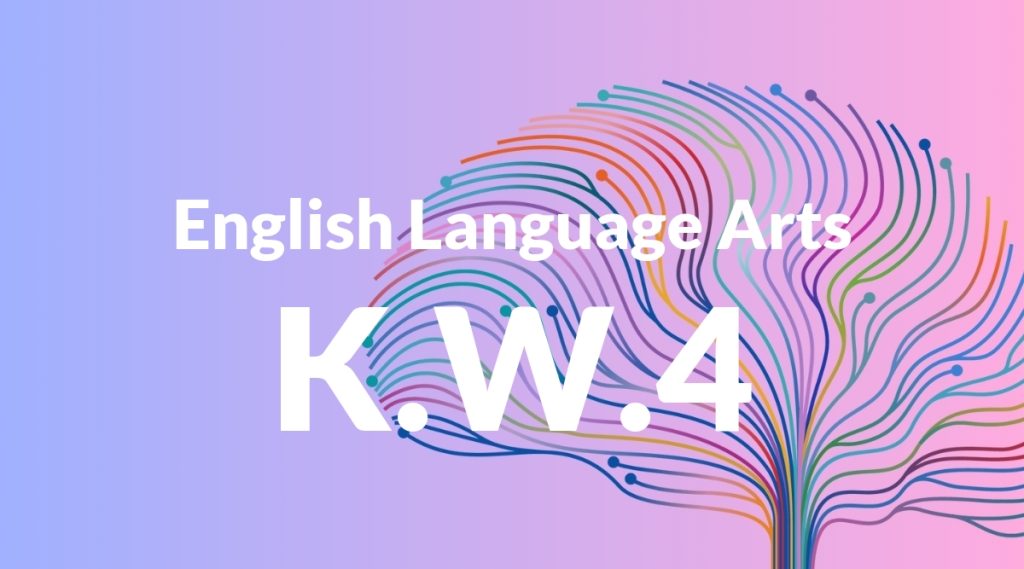Standard: K.W.4 – (Begins in grade 3)
Grade level: Kindergarten
Subject: English Language Arts
Domain: Writing
Teacher Overview
This standard focuses on developing early writing skills in kindergarten students. It sets the foundation for more complex writing tasks in later grades, helping students express their ideas and thoughts through simple sentences. Students should have basic letter recognition, phonics knowledge, and the ability to write their own name.
After mastering this standard, students will be able to write more complex sentences, use proper punctuation, and organize their thoughts coherently.
Common Misconception 1
Many students may think that writing is only about spelling words correctly. This is incorrect because writing is primarily about expressing ideas and conveying messages.
Intervention 1
Encourage students to focus on expressing their ideas first. Use activities that separate idea generation from spelling and grammar to build confidence in their writing abilities.
Common Misconception 2
Some students may believe that their writing needs to be perfect on the first try. This is incorrect as writing is a process that involves drafting, revising, and editing.
Intervention 2
Teach students the importance of drafting and revising their work. Use peer reviews and teacher feedback to show that writing improves over time.
Prerequisite Knowledge
Students should be familiar with letter recognition, basic phonics, and the ability to write their own name.
Subsequent Knowledge
Students will develop the ability to write more complex sentences, use proper punctuation, and organize their thoughts in a coherent manner.
Instructional Activities
- Drawing a picture and writing a sentence about it
- Creating a short story with a beginning, middle, and end
- Writing a letter to a family member
- Making a list of items needed for a picnic




